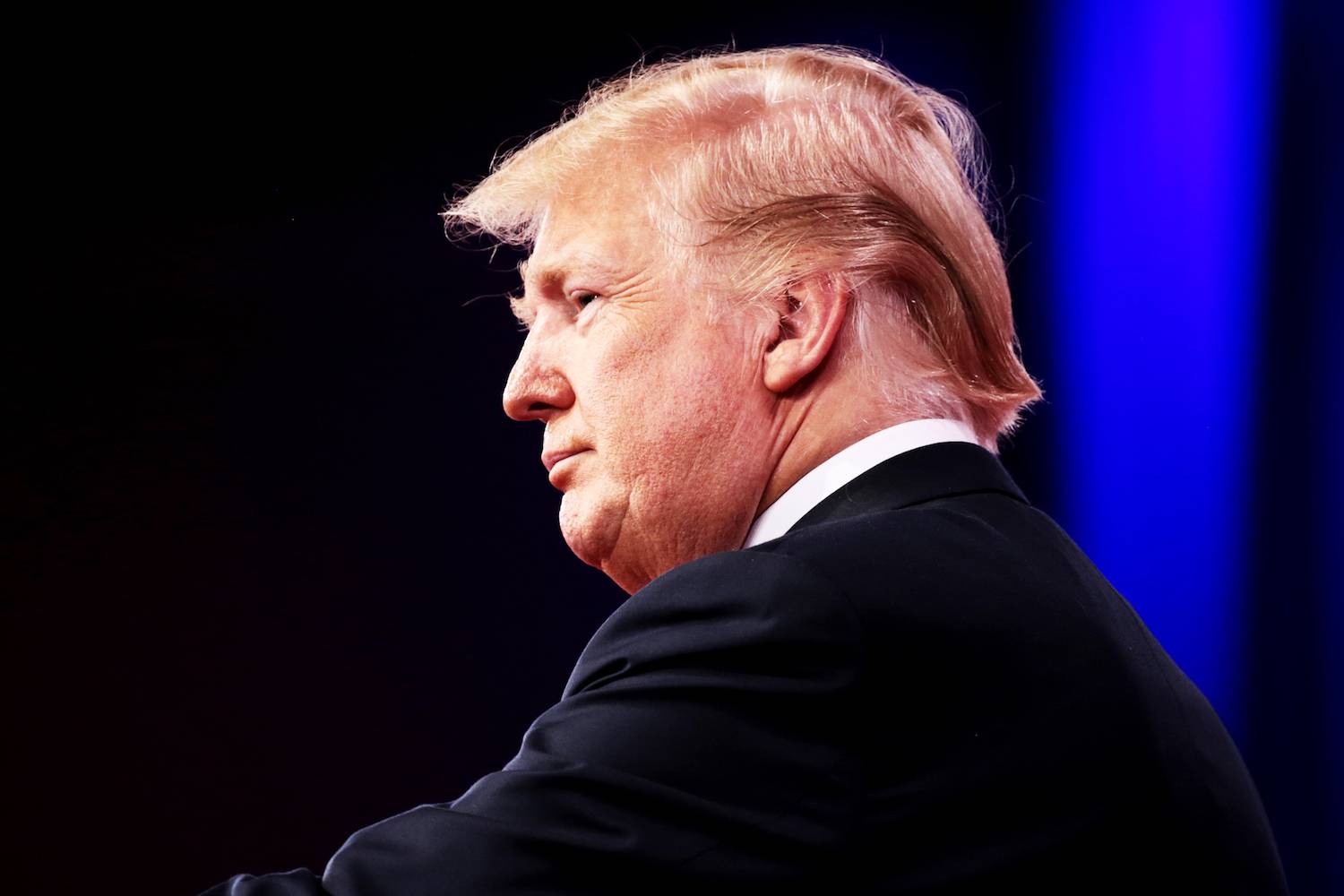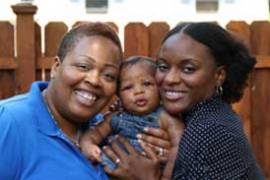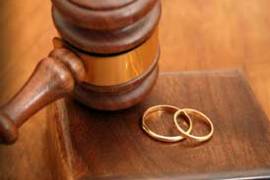Recent media reporting indicates that President Trump has narrowed down his Supreme Court shortlist to three individuals: Brett Kavanaugh, Amy Coney Barrett, and Raymond Kethledge.
The president has frequently (and proudly) asserted that he has a “litmus test” for Supreme Court nominees, which requires that any nominee must be opposed to legalized abortion, common sense gun control measures, and the Affordable Care Act. Any nominee that has satisfied Trump (and his surrogates) about their views on these questions is inherently unsuited for a seat on the highest court in the land, but there’s plenty more in their records that should cause any fair-minded person to quake in their boots.
So, who are these people? I’m so glad you asked!
Brett Kavanaugh
Judge Kavanaugh appears to be leading the pack when it comes to betting on who will be the nominee. He is 53 years old and has served on the D.C. Circuit Court of Appeals since 2006. Judge Kavanaugh clerked for Justice Kennedy, served as Independent Counsel for Kenneth Starr, and is widely considered to be the principal author of the infamous Starr report that was sent to Congress addressing the Whitewater/Monica Lewinsky/Vince Foster investigation.
Judge Kavanaugh was originally nominated to the D.C. Circuit Court of appeals in 2003. Sen. Chuck Schumer (D-N.Y.) called his nomination “not just a drop of salt in the partisan wounds; it is the whole shaker,” because he was so politically toxic. He was eventually confirmed in 2006.
The Family Research Council (FRC), which has sought to undermine anti-discrimination protections for LGBTQ people and our families since its inception, vigorously advocated on behalf of Mr. Kavanaugh’s nomination. FRC sent an email alert in 2005 urging supporters of the religious right to contact Congress and demand that Mr. Kavanaugh be confirmed. FRC also criticized then-Senator Bill Frist (R-T.N.) for not advancing the nomination. After Judge Kavanaugh was finally confirmed, FRC praised the vote and urged action on other nominees. FRC clearly believed that Judge Kavanaugh would advance their interests, which, as mentioned previously, are focused largely on working to undermine the rights of LGBTQ people.
Of particular salience at this moment in our nation’s history, Judge Kavanaugh has argued that sitting Presidents should not be subject to civil or criminal charges while in office, that presidents should be able to dismiss any counsel “out to get him,” and that the president does not need to follow the law if he thinks the law is unconstitutional. A President who is under investigation would certainly find this aspect of Judge Kavanaugh’s record…interesting. Yet, the limits of executive privilege and the proper amount of deference owed to the Chief Executive are issues related to matters far beyond the Special Counsel’s purview – these questions are at the heart of every challenge to arbitrary presidential action ranging from the separation of children from their families at the border to the declaration of a ban on military service by transgender people.
Judge Kavanaugh may also be leading the pack because he is viewed as likely to provide the decisive vote to destroy the Affordable Care Act. He wrote a lengthy dissent objecting to the denial of a petition to review a lower court holding rejecting a procedural challenge to the ACA (claiming that the legislation had originated in the “wrong” house of Congress). Supporters of this case had hoped that it would provide a vehicle for the Supreme Court to strike down the highly popular and life-saving health care legislation. In another challenge to the law, Kavanaugh wrote a dissenting opinion that set forth a roadmap for Congress to repeal the ACA’s individual mandate, which would essentially nullify the law’s requirement of coverage for those with preexisting conditions.
Judge Kavanaugh has also been a reliable vote for those who wish to block access to abortion. He was part of a three judge panel that vacated a Temporary Restraining Order issued by a D.C. federal district court allowing an immigrant teenage girl to get an abortion. This order delayed the abortion by requiring the girl to be placed in a sponsor’s custody. When the D.C. Circuit then reversed that decision on appeal, Judge Kavanaugh dissented, claiming that the government was creating a “new right” for immigrants in custody “to obtain immediate abortion on demand” for “unlawful immigrant minors.”
And one more for good measure: Judge Kavanaugh dissented from the denial of a petition for en banc review following a decision from a three judge panel holding that the ACA’s requirement that employer insurance plans cover contraception did not violate the Religious Freedom Restoration Act (RFRA) by permitting religious non-profits to “opt out” (filling out a form) of the contraceptive requirement.
Amy Coney Barrett
Amy Coney Barrett is currently a judge on the Seventh Circuit Court of Appeals. Before being confirmed, Judge Barrett clerked for Justice Scalia and taught at Notre Dame Law School.
She frequently publishes her personal writings. In one 2015 letter, she asserted that “marriage and family [are] founded on the indissoluble commitment of a man and a woman.” Written only months after the Supreme Court’s marriage equality decision in Obergefell, this letter can only be understood as a rejection of the equal legal status of LGBTQ couples, and a warning shot with respect to the legitimacy that she would afford that decision.
Judge Barrett has insisted upon “the significance of sexual difference and the complementarity of men and women,” which simply cannot be reconciled with the Supreme Court decision in Price Waterhouse v. Hopkins, holding that Title VII’s prohibition on sex discrimination also prohibits an employer from discriminating due to gender-based stereotypes.
When asked whether she would describe any of the landmark LGBTQ rights decisions as decisions that are beyond reconsideration (so called “superprecedents”), Judge Barrett equivocated that she has “not undertaken an independent analysis of whether any particular case qualifies as a superprecedent.” Her refusal to recognize the settled nature of LGBTQ jurisprudence is alarming at a moment when the Trump administration and certain states are trying to roll them back. Moreover, in a recent law review article, Judge Barrett refused to include Roe v. Wade as superprecedent because there is “public controversy” surrounding the decision.
In a sign of questionable judgment (at best), Judge Barrett gave a lecture paid for by the Alliance Defending Freedom (ADF), an extreme anti-LGBTQ legal organization committed to undermining the legal rights of LGBTQ people and denigrating the legitimacy of same-sex relationships and very existence of transgender people. Judge Barrett took issue with the characterization of ADF as an anti-LGBTQ group, insisting that they were merely one voice participating in a matter of “public controversy.”
Well, then. That certainly speaks volumes, now, doesn’t it?
Lastly, Judge Barrett has described the prohibitions on abortion and euthanasia as “absolute” because they “take away innocent life.” She further asserted that abortion “(properly defined) is always immoral and should absolutely be prohibited under Catholic doctrine.” But don’t worry – we’re sure that she’ll do her best to convince Senator Collins that supporters of safe and legal access to abortion have no reason to be concerned by her nomination. Right.
Raymond Kethledge
Sixth Circuit Court of Appeals Judge Raymond Kethledge earned his anti-abortion stripes early while serving as judicial counsel to Senator Spencer Abraham (R-M.I.) while Senator Abraham pushed for a federal abortion ban). Kethledge is also a former Justice Kennedy clerk.
In 2012, Judge Kethledge joined a panel decision affirming a lower court’s dismissal in a case involving a man who was subjected to relentless harassment by another male employee. The panel said the victim’s claim of a hostile work environment under Title VII of the Civil Rights Act could not stand because the man could not prove that his harasser was bisexual or gay. (Note: Even Justice Scalia didn’t take such a narrow view of what was covered by the federal law prohibiting discrimination because of sex.) Judge Kethledge’s narrow interpretation of this important civil rights law will certainly give comfort to those who are trying to stem the tide of favorable judicial decisions holding that LGBTQ people are, in fact, protected by federal laws prohibiting sex discrimination.
Judge Kethledge has seized the opportunity to undermine civil rights in other contexts as well. For instance, he ruled in favor of the Ohio Republican Party when it sued the state to block a directive that ensured that typos and clerical errors in government databases would not disenfranchise voters. The ruling forced these voters to vote “provisionally,” if they were able to vote at all. Judge Kethledge’s holding would have prevented as many as 200,000 otherwise eligible voters from casting their ballots. Luckily, the Supreme Court promptly vacated the decision and allowed the votes to be counted.
Judge Kethledge also ruled in favor of Border Patrol using slurs to describe undocumented people, excusing the offensive language as merely “terms of art to refer to undocumented persons generally, rather than Hispanics specifically.” Seriously? Yes, we’re very serious.
We wish we were making this stuff up, but we are not. This. Is. Not. A. Drill.
Brett Kavanaugh, Amy Coney Barrett, and Raymond Ketledge embody President Trump’s values. They are not nominees that we want or need, and there is too much at stake.
Whether Donald Trump’s nominee is one of these three judges or anyone else from his list, the answer is the same: Not on our watch.
We can stop Donald Trump’s extreme agenda, but we need your help. Call your senators today and tell them to vote NO against Donald Trump’s extreme nominees!





